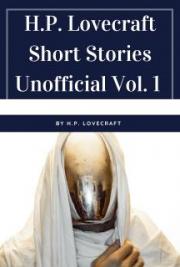The Woman Beater
By Israel Zangwill
(The Grey Wig/Stories and Novelettes, New York: The Macmillan Company, 1903)
I She came 'to meet John Lefolle', but John Lefolle did not know he was to meet Winifred Glamorys. He did not even know he was himself the meeting-point of all the brilliant and beautiful persons, assembled in the publisher's Saturday Salon, for although a youthful minor poet, he was modest and lovable. Perhaps his Oxford tutorship was sobering. At any rate his head remained unturned by his precocious fame, and to meet these other young men and women--his reverend seniors on the slopes of Parnassus--gave him more pleasure than the receipt of 'royalties'. Not that his publisher afforded him much opportunity of contrasting the two pleasures. The profits of the Muse went to provide this room of old furniture and roses, this beautiful garden a-twinkle with Japanese lanterns, like gorgeous fire-flowers blossoming under the white crescent-moon of early June.
Winifred Glamorys was not literary herself. She was better than a poetess, she was a poem. The publisher always threw in a few realities, and some beautiful brainless creature would generally be found the nucleus of a crowd, while Clio in spectacles languished in a corner. Winifred Glamorys, however, was reputed to have a tongue that matched her eye; paralleling with whimsies and epigrams its freakish fires and witcheries, and, assuredly, flitting in her white gown through the dark balmy garden, she seemed the very spirit of moonlight, the subtle incarnation of night and roses.
When John Lefolle met her, Cecilia was with her, and the first conversation was triangular. Cecilia fired most of the shots; she was a bouncing, rattling beauty, chockful of confidence and high spirits, except when asked to do the one thing she could do--sing! Then she became--quite genuinely--a nervous, hesitant, pale little thing. However, the suppliant hostess bore her off, and presently her rich contralto notes passed through the garden, adding to its passion and mystery, and through the open French windows, John could see her standing against the wall near the piano, her head thrown back, her eyes half-closed, her creamy throat swelling in the very abandonment of artistic ecstasy. 'What a charming creature!' he exclaimed involuntarily.
'That is what everybody thinks, except her husband,' Winifred laughed. 'Is he blind then?' asked John with his cloistral naïveté.
'Blind? No, love is blind. Marriage is never blind.'
The bitterness in her tone pierced John. He felt vaguely the passing of some icy current from unknown seas of experience. Cecilia's voice soared out enchantingly.
'Then, marriage must be deaf,' he said, 'or such music as that would charm it.'
She smiled sadly. Her smile was the tricksy play of moonlight among clouds of faëry. 'You have never been married,' she said simply.
'Do you mean that you, too, are neglected?' something impelled him to exclaim. 'Worse,' she murmured.
'It is incredible!' he cried. 'You!' 'Hush! My husband will hear you.'
Her warning whisper brought him into a delicious conspiracy with her. 'Which is your husband?' he whispered back.
'There! Near the casement, standing gazing open-mouthed at Cecilia. He always opens his mouth when she sings. It is like two toys moved by the same wire.'
He looked at the tall, stalwart, ruddy-haired Anglo-Saxon. 'Do you mean to say he--?' 'I mean to say nothing.'
'But you said--' 'I said "worse".'
'Why, what can be worse?'
She put her hand over her face. 'I am ashamed to tell you.' How adorable was that half- divined blush!
'But you must tell me everything.' He scarcely knew how he had leapt into this role of confessor. He only felt they were 'moved by the same wire'.
Her head drooped on her breast. 'He--beats--me.'
'What!' John forgot to whisper. It was the greatest shock his recluse life had known, compact as it was of horror at the revelation, shamed confusion at her candour, and delicious pleasure in her confidence.
This fragile, exquisite creature under the rod of a brutal bully!
Once he had gone to a wedding reception, and among the serious presents some grinning Philistine drew his attention to an uncouth club--'a wife-beater' he called it. The flippancy had jarred upon John terribly: this intrusive reminder of the customs of the slums. It grated like Billingsgate in a boudoir. Now that savage weapon recurred to him--for a lurid instant he saw Winifred's husband wielding it. Oh, abomination of his sex! And did he stand there, in his immaculate evening dress, posing as an English gentleman? Even so might some gentleman burglar bear through a salon his imperturbable swallow-tail.
Beat a woman! Beat that essence of charm and purity, God's best gift to man, redeeming him from his own grossness! Could such things be? John Lefolle would as soon have credited the French legend that English wives are sold in Smithfield. No! it could not be real that this flower-like figure was thrashed.
'Do you mean to say--?' he cried. The rapidity of her confidence alone made him feel it all of a dreamlike unreality.
'Hush! Cecilia's singing!' she admonished him with an unexpected smile, as her fingers fell from her face.
'Oh, you have been making fun of me.' He was vastly relieved. 'He beats you--at chess-- or at lawn-tennis?'
'Does one wear a high-necked dress to conceal the traces of chess, or lawn-tennis?'
He had not noticed her dress before, save for its spiritual whiteness. Susceptible though he was to beautiful shoulders, Winifred's enchanting face had been sufficiently distracting. Now the thought of physical bruises gave him a second spasm of righteous horror. That delicate rose-leaf flesh abraded and lacerated!
'The ruffian! Does he use a stick or a fist?'
'Both! But as a rule he just takes me by the arms and shakes me like a terrier a rat. I'm all black and blue now.'
'Poor butterfly!' he murmured poetically.
'Why did I tell you?' she murmured back with subtler poetry.
The poet thrilled in every vein. 'Love at first sight', of which he had often read and often written, was then a reality! It could be







